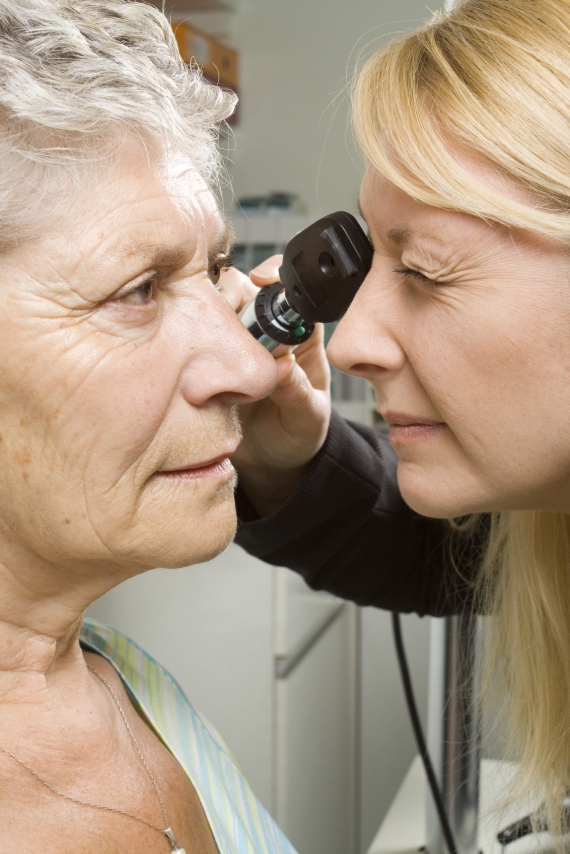Diabetes and Eyes
Early detection, prompt treatment, and expert follow-up care of eye diseases related to diabetes can protect you against vision loss and potential blindness.
 Diabetes can affect many parts of the body and is associated with serious complications, such as heart disease, stroke and kidney failure. It can also lead to blindness. In fact, people with diabetes are 25 times more likely to lose vision than those who are not diabetic, according to the American Academy of Ophthalmology.
Diabetes can affect many parts of the body and is associated with serious complications, such as heart disease, stroke and kidney failure. It can also lead to blindness. In fact, people with diabetes are 25 times more likely to lose vision than those who are not diabetic, according to the American Academy of Ophthalmology.
At Elmquist Eye Group, we perform a thorough retinal exam through dilated pupils to check for any diabetic complications. This is a very important exam because early detection and treatment can help you avoid substantial vision loss.
Our Elmquist team includes:
- E. Trevor Elmquist, DO – Dr. Elmquist is a skilled ophthalmologist who is board certified by the American Board of Ophthalmology and specializes in general ophthalmology and cataract surgery. He has been selected as one of America’s Top Doctors based on nominations from other physicians.
- Kate M. Wagner, OD, is board certified by the State of Florida and the National Board of Optometry. Prior to joining Elmquist Eye Group, she gained extensive experience as a Captain in the U.S. Army during Operation Iraqi Freedom, where she treated service men and women and local civilians at a clinic north of Baghdad.
- Nina G. Burt, OD, is board certified by the State of Florida and the National Board of Optometry. She completed her degree at Fort Lauderdale’s Nova Southeastern University, graduating with honors. Dr. Burt he worked in private practice for three years before joining Elmquist Eye Group in 2009.
Facts about Diabetes and Eyes
According to the American Diabetes Association, over 21 million Americans have been diagnosed with diabetes, and another 8.1 million have the disease but don’t know it. People with diabetes have a higher risk of blindness than people without diabetes, but most diabetics have nothing more than minor eye disorders.
People with diabetes are 40% more likely to suffer from glaucoma than people without diabetes. The longer you have diabetes, the more likely it is that you may get glaucoma, and that risk increases with age.
Although many individuals without diabetes get cataracts, those with diabetes are 60% more likely to develop them. People with diabetes also tend to get cataracts at a younger age and they often progress faster.
Diabetes can also damage the retina. A condition known as diabetic retinopathy occurs when high blood-sugar levels damage the blood vessels in the retina (light-sensing tissue in the back of the eye). The disease usually affects both eyes.
The early stage of the disease is called nonproliferative diabetic retinopathy. Serious vision damage is less likely at this stage, but it can lead to a more advanced stage of the disease, called proliferative diabetic retinopathy.
There is no cure for diabetic retinopathy, but there are effective treatments, such as laser treatments and vitrectomy surgery, which can slow vision loss. Treatments will vary based on the nature of the disease and how far it has progressed.
If you suffer from diabetes, don’t wait for symptoms to occur. Be sure to have a comprehensive dilated eye exam at Elmquist Eye Group at least once a year so that you can be monitored for diabetic retinopathy, diabetic macular edema, glaucoma, cataracts, and other complications. Call us today at (239) 936-2020 for the best care in Fort Myers and Cape Coral.
